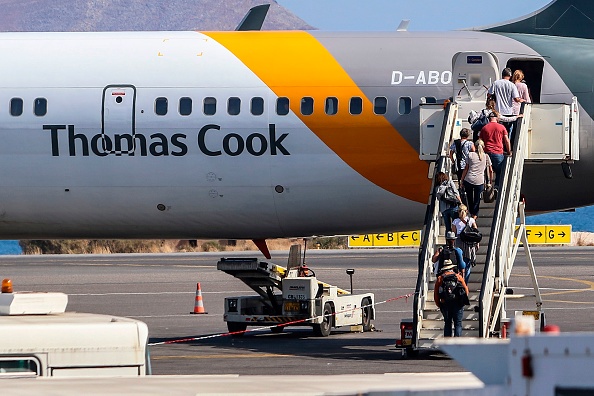Thomas Cook: Taxpayers will pay for next tour firm collapse, says watchdog

The collapse of Thomas Cook has left the government’s tourism industry fund severely depleted, meaning taxpayers would have to foot the bill if another tour operator falls into insolvency.
Thomas Cook’s shock insolvency and the subsequent repatriation of thousands of customers cost the government at least £156m, according to the National Audit Office (NAO).
The watchdog’s report into Thomas Cook’s demise, released today, warned a tourism industry insurance scheme called Atol has seen its Air Travel Trust Fund (ATTF) depleted by Thomas Cook’s fall.
Atol offers customers financial protection if a tour operator goes under. But after average annual calls of £10m on Atol’s resources, Thomas Cook’s collapse cost it £481m.
In January, the Civil Aviation Authority (CAA) announced the ATTF had paid out £310m.
Although the CAA expects the fund to remain in a surplus, there will be limited resources left given the scale of Thomas Cook’s collapse. And the government has agreed to stand behind the scheme’s ATTF fund in the event of a shortfall.
Meg Hillier, who chairs the Public Accounts Committee, said existing arrangements had let the travel industry “off the hook”.
“The resources to cover other airlines going bust is now very limited. New regulations are urgently required,” she added.
It comes as airlines and tour operators warn of huge shortfalls in profit and revenue over coronavirus.
International travel bans mean the sector is facing huge disruption as countries attempt to stem the spread of coronavirus. The UK has warned against all “non-essential” travel, while the EU and US are among those to issue wide-ranging travel bans.
Thomas Cook rival Tui has been severely impacted by the outbreak of coronavirus. And it has been forced to suspend all package holidays as the world’s governments impose strict travel restrictions.
Last week the tour operator announced it is freezing pre-payments and suspending some of its hotel contracts.
Should another tour operator fall, the CAA said it will cost more to manage than the resources available in the government-backed fund.
The global coronavirus pandemic has decimated the travel and aviation industry, with calls for state intervention to bail out airlines hit by dramatic falls in passenger numbers.
The British government will reportedly use emergency measures to lift restrictions on the amount of financial support that businesses can be given.
Earlier this week, Chancellor Rishi Sunak confirmed that a specific package for airlines and airports will be unveiled in the coming days due to the “particularly acute” challenges that they are facing.